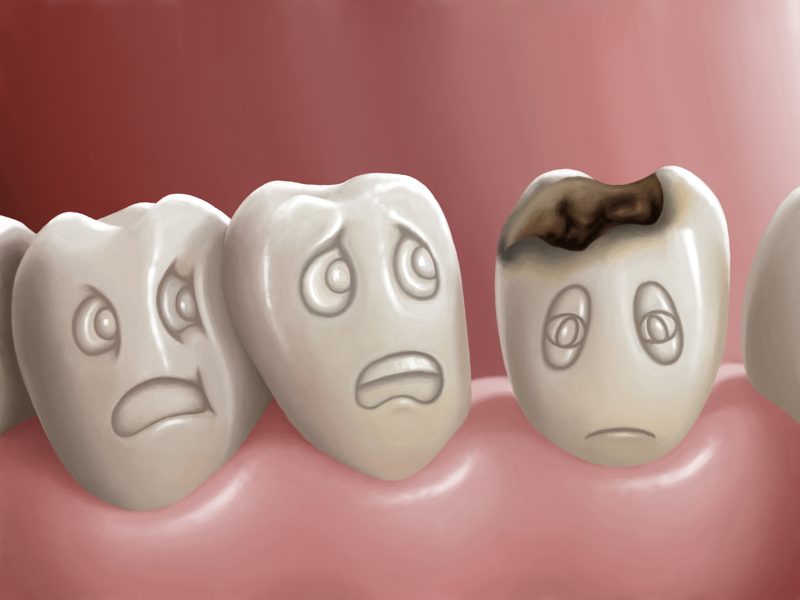As The Bahamas approaches the end of our second year of the COVID-19 pandemic, the ongoing health challenges continue to impact patients and our collective mental health. This has become more obvious to dentists as we are seeing an increase in bruxism (grinding of teeth), chipped and cracked teeth, jaw joint disorders and diseases like cavities and periodontal disease.
In this column, we will discuss the relationship between the Covid pandemic and the increase in tooth decay.
Covid-19 is a coronavirus that attacks the respiratory system. Signs and symptoms include fever, cough and shortness of breath. In more severe cases, infection can cause pneumonia, severe acute respiratory syndrome and sometimes death. Patients who die from complications of Covid-19 suffer because they become immunocompromised.
Dental professionals are always seeking to understand why many patients are suffering rampant tooth decay. Studies are showing a direct association with the pandemic. Here are a few important factors at play:
Stress has a significant impact on the immune system. Stress affects the body’s ability to fight off infection. Also, stress impacts the body’s overall hormone balance causing the production of stress-related hormones like cortisol, which has widespread effects throughout the body.
Stress affects saliva production and flow, leading to an increase in dry mouth. Dry mouth (xerostomia) leads to thicker and stickier plaque. Since saliva is necessary to neutralize acids that come from decay-causing bacteria, a thick or limited supply of saliva results in aggressive tooth decay.
Also, long-term stress can lead to anxiety and depression. This leads to prescribed medications designed to manage the stress. Many of these medications have side effects such as dry mouth.
Mouth breathing, associated with constant mask wearing causes dry mouth. This causes a change in the pH and the flora of bacteria in the oral cavity. Dry mouth does not only contribute to changes, but stress also impacts the body’s bacterial balance. This imbalance leads to more bad bacteria, which cause conditions including tooth decay and periodontal disease.
Stress-related eating can lead to an increase in cavities during the COVID-19 pandemic. The classic comfort foods are often high in sugar, which alters the overall bacteria flora in a way that is more ideal for decay-causing bacteria.
Also, the pandemic has likely caused changes to person’s overall dietary choices and has increased the frequency of meals. As patients have been working more at home and less at the workplace, many patients may find themselves eating different foods or eating or snacking more frequently at home. Many eat in bed and fall asleep without brushing their teeth. Here again, this changes the overall oral environment. If patients have not changed their overall oral hygiene habits to compensate for this, then decay rates are likely to increase.
Significant financial and economic changes are seen amid the pandemic. Job changes and lay-offs during the pandemic affected some dental benefit plans for many patients. Since many dental offices were closed or saw minimum patients during the earlier days of the pandemic, this led to a reduced standard of care for many patients.
For those patients that have poor oral hygiene or who already have significant dental conditions, this created a perfect storm for a significant increase in the rate of cavities and other dental problems.
The COVID-19 pandemic has created a significant increase in health challenges for most of the public. As patients return to dental offices with major oral health challenges like rampant cavities and periodontal disease, dentists throughout The Bahamas are adequately prepared to manage these severe oral health conditions. See your friendly dentist at your earliest opportunity to avoid dental emergencies.
Dr. Kendal V. O. Major is Founder and CEO of Center for Specialized Dentistry which is a comprehensive family dental practice operating in Nassau and Freeport. He is the first Bahamian Specialist in gum diseases and dental implants since 1989. He also is a certified Fastbraces provider. His practice is located at 89 Collins Avenue, Nassau at (242)325-5165 or [email protected].





